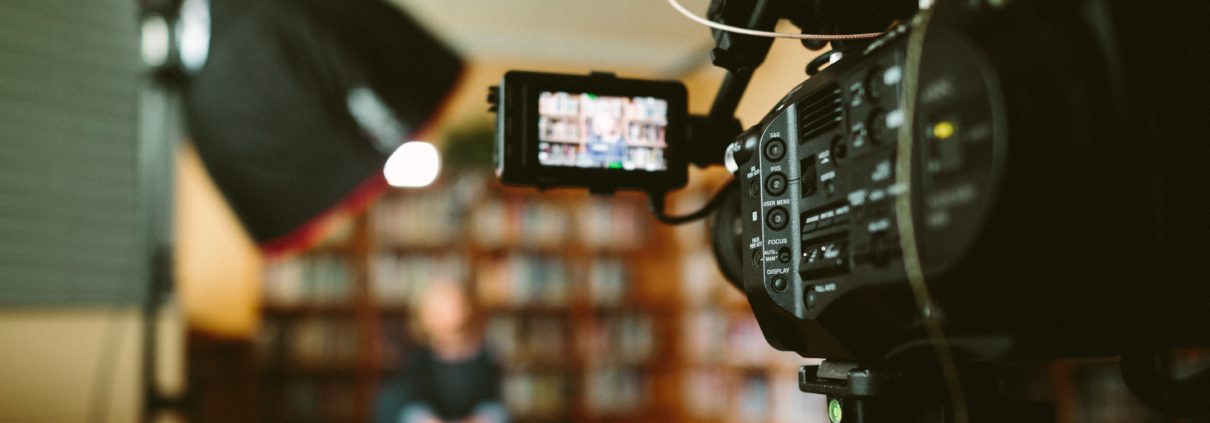Should You Ever Go “Off The Record” With The Media?
President Trump recently tweeted that something he said to a Bloomberg reporter about a trade deal with Canada that was “off the record” was leaked.
The Toronto Star is the outlet that actually printed the remarks – not Bloomberg. The Toronto Star says they got their information from a source. Bloomberg says it respected the “off the record” comment and didn’t publish it.
Regardless of what went down – this is an important message for those of you who are going to be speaking in front of the media.
In all the years that I’ve spent as a journalist, nearly 20 now, I’ve been told in interviews “this is off the record “numerous times. And every single time I honored that request.
It’s something that true journalists take very seriously.
We want to protect our sources and build trust with them. To violate that trust would be very foolish – which is why the idea behind going “off the record” should be sacred.
That said, nothing is ever a guarantee.
You can’t unsay something.
So simply stated – if you don’t want something you’ve said to leak….Don’t say it! It’s as easy as that.
I media train experts, entrepreneurs and authors every day to speak confidently in front of the media.
One of the first lessons I give is to ALWAYS assume you’re on camera. Look your best and act your best. Especially with television or video (which is mostly what I teach about) your microphone could be hot the second it’s put on you and recording everything you say.
As soon as you agree to that interview – everything is fair game.
BONUS FREEBIE: Your message deserves the media’s attention. So how do you get out there in a bigger way? I’ve got you covered. CLICK HERE to grab my free “Checklist to Become a Go-To Media Expert.”
Remember what your mom told you all those years ago about how “if you didn’t have anything nice to say don’t say anything at all”?
This goes with the media too.
If you don’t want it reported — don’t say it.
What if you do want to say something “off the record”?
Before you commit to saying something “off the record” ask yourself why you’re saying it.
Is it for shock value?
It is to show off?
Is it to seem more important?
Is it to be gossipy?
Truly think through what the purpose of going “off the record” would do for you.
The only reason you should ever say something “off the record” is to build a relationship with a reporter and give that information because it could truly make a difference.
I tell my clients all the time to reframe their mindset about why they’re commenting to the media – it should be to be of service to the audience. It should not be to seem self important or be self serving.
But if you do say something that you want to be “off the record” it’s very important that you reiterate that several times. If you’re on camera make sure to say it into the camera and look around at the crew and make sure everyone knows your request.
Never assume that anything you say will be tucked away or ignored.
As much as I stand behind journalistic integrity and I know what I have done in “off the record” situations – you can never account for what will happen once your interview ends.
Journalists share interviews with other colleagues at the same outlets and with affiliates. Whenever I shot an interview for a story on camera, the video would go into one central place where anyone in the company had access to it.
As a responsible producer if there was something that should not be used I would leave notes on the video about it.
This is common practice – journalists leaving notes to check with our legal department or to check with the producer who had produced the story originally before using it.
But guess what?
Sometimes those notes can be overlooked especially during the rush of a breaking news story.
Also understand that the media might not come back to you to ask you to fact check something especially in television news – it’s a very fast-paced medium and things get published quickly.
It is very hard to undo something that has already been done.
So use this as a word of caution when doing media interviews – if you don’t want something to get out – don’t say it!




Great advice! The media is a fast-paced, quickly-changing environment. We were always taught that dead bodies are never shown, suicide was not reported (unless it involved some other crime, like murdering someone else too), and that death was never reported before the 11pm news. But those days have changed and rather quickly after i graduated. On another note, how do we have access to your report? I don’t see a link or other delivery method. Thanks!
Thanks for Your comment to Susan! Times have definitely changed! Thanks for your interest in my checklist for becoming a media go to expert -the link is in the post if you were to click on those words but now I see the hyperlink is not obvious so I will fix that but here is the direct link. https://forms.aweber.com/form/56/1319043856.htm